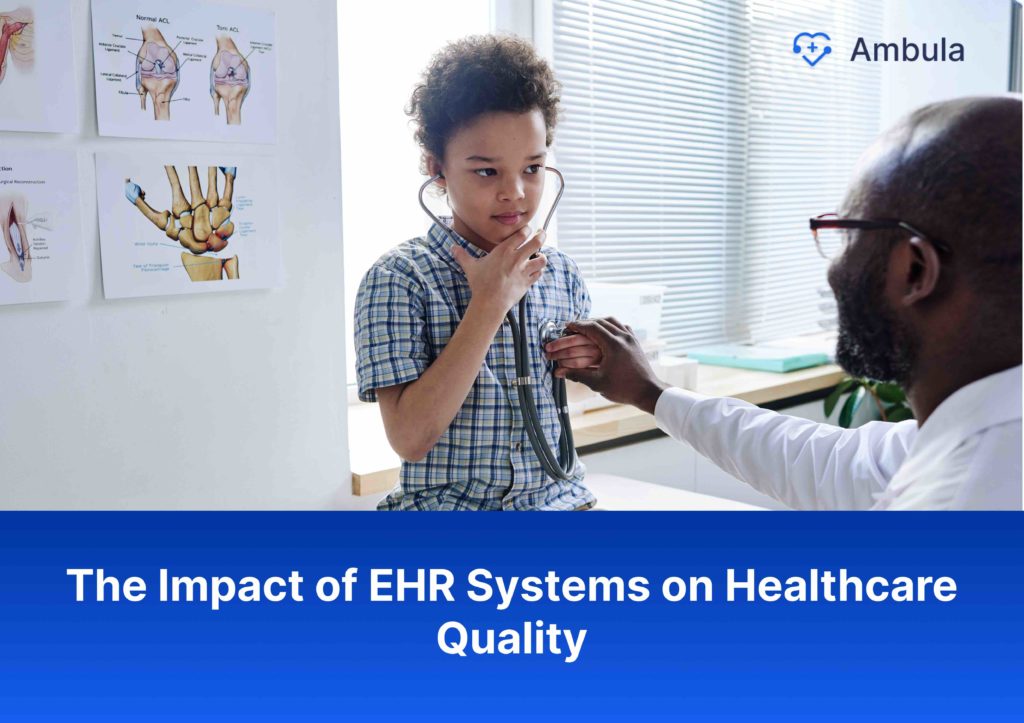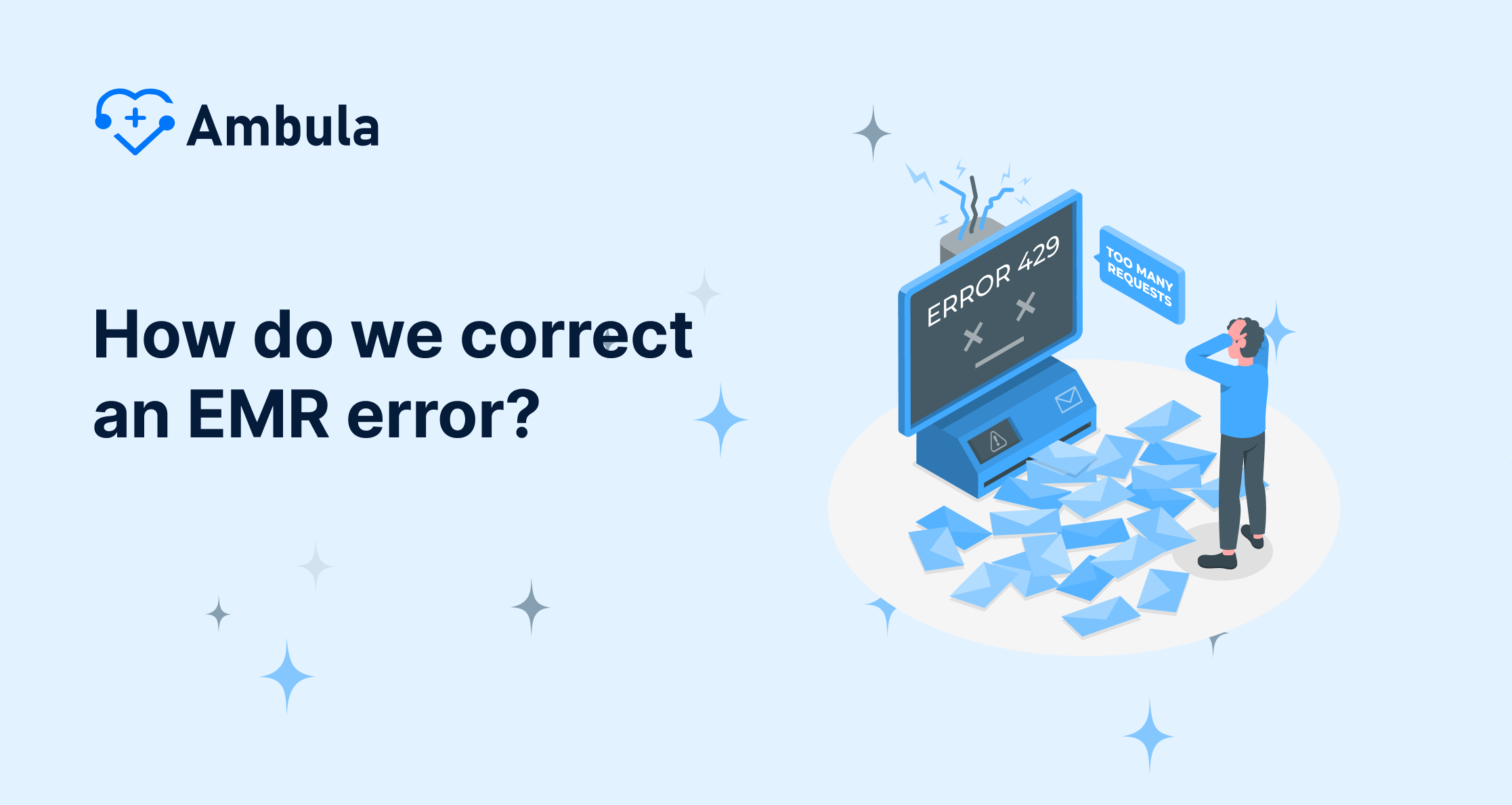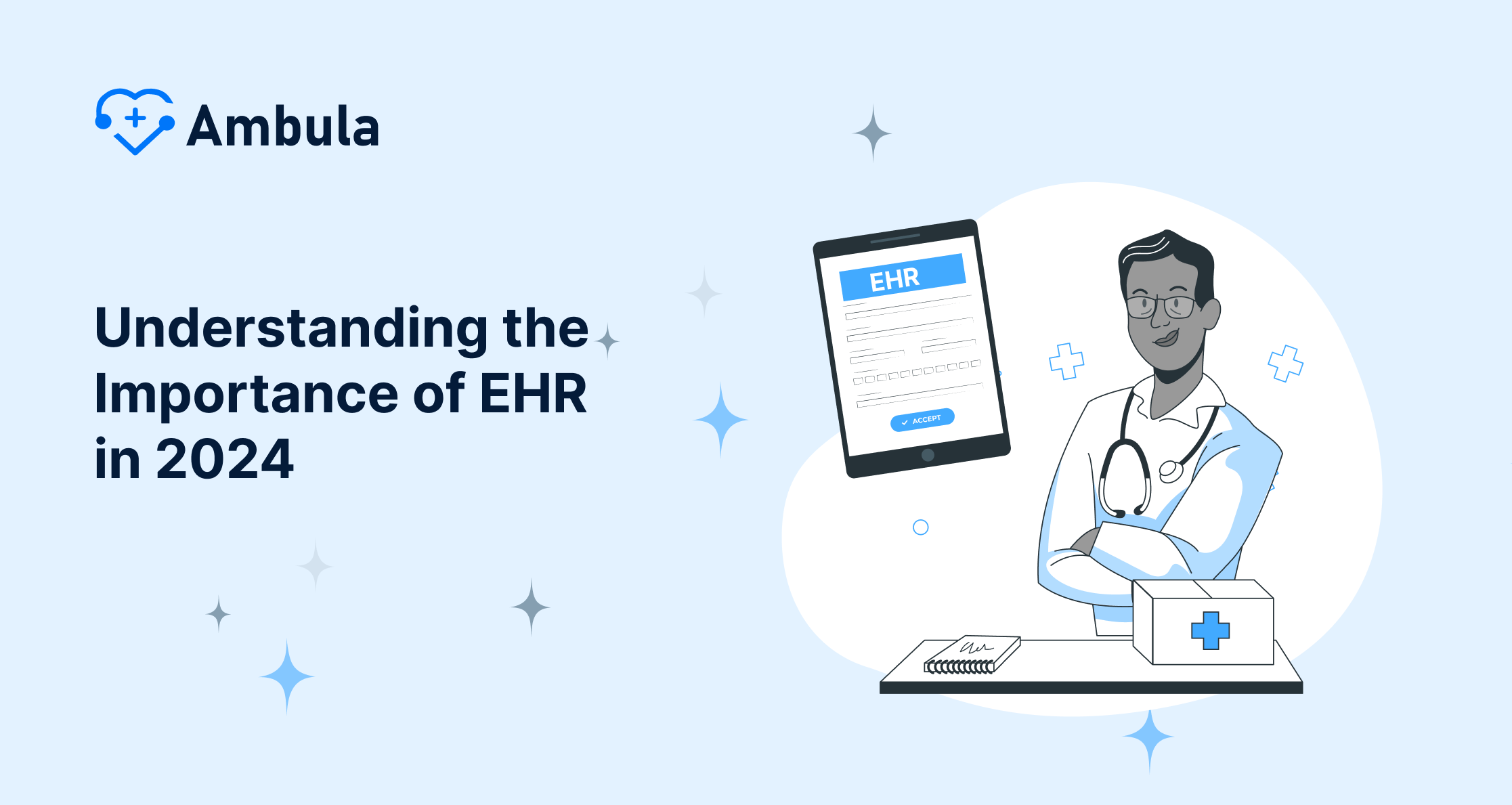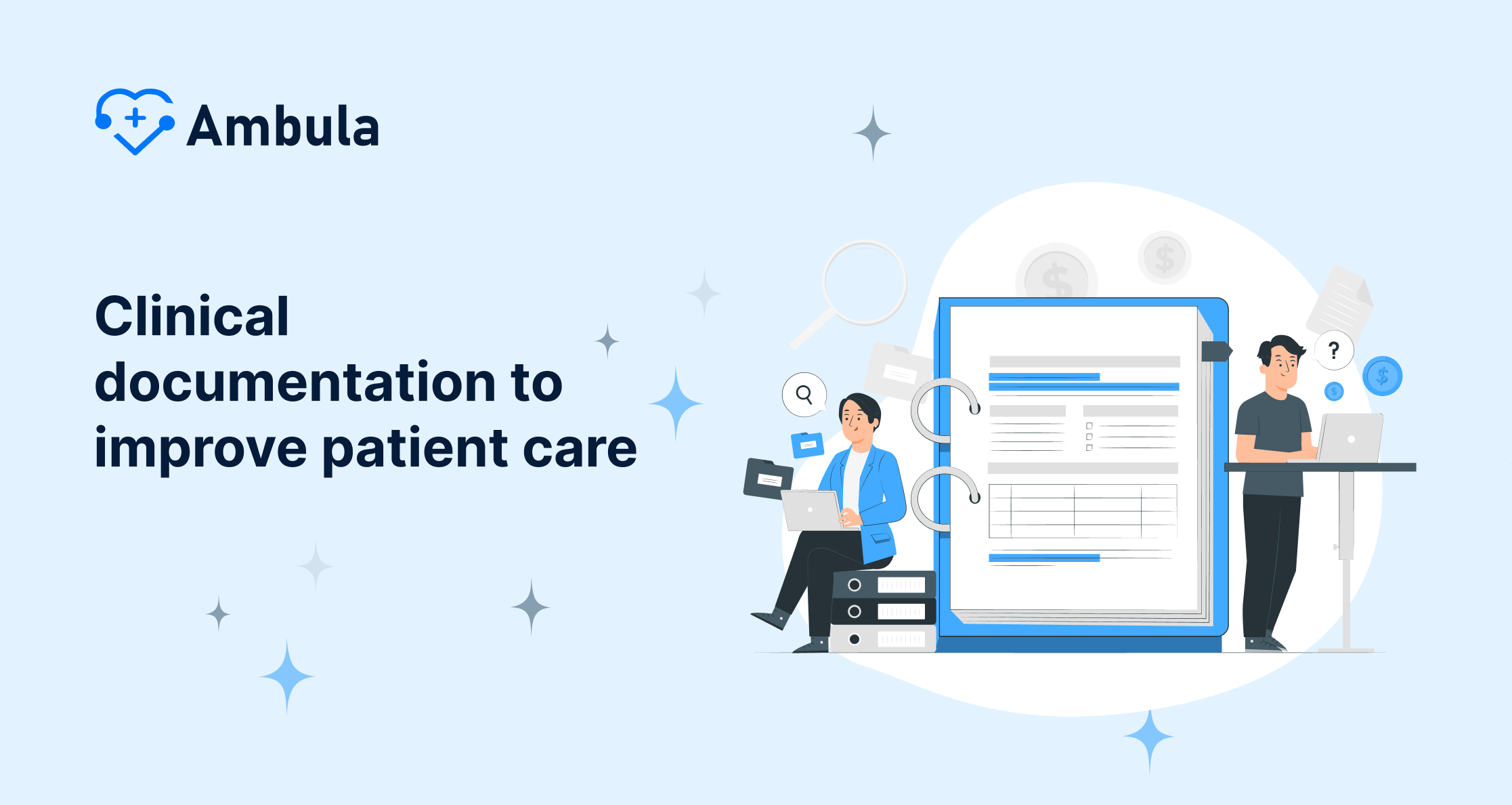
In an era marked by rapid technological advancements, the healthcare sector has witnessed a paradigm shift with the widespread adoption of Electronic Health Records (EHRs). These digital repositories, designed to store and manage patients’ comprehensive medical histories, have emerged as a game-changer, revolutionizing the way healthcare is delivered and experienced.
As the global healthcare landscape evolves, the demand for streamlined operations, enhanced patient safety, and improved clinical outcomes has become paramount. EHRs have stepped in as a catalyst, offering a centralized and secure platform for healthcare providers to access, share, and analyze critical patient data. This article delves into the multifaceted impact of EHRs, exploring how these digital marvels are reshaping the quality of care, fostering seamless coordination, and paving the way for data-driven decision-making.
Empowering Clinicians: Comprehensive Patient Insights
One of the most significant advantages of EHRs lies in their ability to consolidate a patient’s entire medical journey into a cohesive and easily accessible digital record. With a few clicks, healthcare professionals can gain a holistic view of a patient’s medical history, including diagnoses, medications, allergies, lab results, and imaging studies.
This comprehensive repository of information not only streamlines the clinical workflow but also equips healthcare providers with invaluable insights, enabling them to make well-informed decisions regarding treatment plans, medication management, and preventive care strategies. By having a complete picture of a patient’s health status at their fingertips, clinicians can deliver personalized, evidence-based care tailored to individual needs.
Enhancing Patient Safety: Reducing Medical Errors
In the realm of healthcare, patient safety is of paramount importance, and EHRs have emerged as a powerful ally in mitigating the risk of medical errors. These digital systems incorporate robust safety features, such as automated medication alerts, allergy checks, and drug-interaction warnings, which serve as safeguards against potential adverse events.
Furthermore, EHRs facilitate seamless communication and collaboration among healthcare teams, ensuring that crucial patient information is readily available and shared across multiple providers. This real-time access to up-to-date data minimizes the likelihood of miscommunication, duplication of tests, or conflicting treatment plans, ultimately enhancing patient safety and reducing the potential for medical errors.
Optimizing Clinical Workflows: Efficiency and Productivity
Beyond their clinical benefits, EHRs have revolutionized the way healthcare providers manage their daily operations. By digitizing patient records and streamlining administrative tasks, EHRs have significantly reduced the time and effort required for documentation, freeing up valuable resources that can be redirected toward patient care.
Moreover, EHRs have facilitated seamless integration with other healthcare systems, enabling efficient scheduling, ordering of tests and medications, and retrieval of lab results. This interconnectivity eliminates redundancies, minimizes delays, and ensures that critical information is readily available when and where it is needed, optimizing clinical workflows and enhancing overall productivity.
Harnessing the Power of Data: Informed Decision-Making
In the era of big data and advanced analytics, EHRs have emerged as a treasure trove of valuable information. The vast amounts of structured and unstructured data captured within these digital systems hold immense potential for driving data-driven decision-making and fostering continuous quality improvement initiatives.
By leveraging sophisticated data analytics tools and techniques, healthcare organizations can extract meaningful insights from EHR data, uncover patterns, identify trends, and pinpoint areas for improvement. This data-driven approach empowers healthcare providers to make informed decisions, optimize resource allocation, and develop evidence-based strategies to enhance patient outcomes and operational efficiency.
Fostering Collaboration and Care Coordination
Effective healthcare delivery often involves a multidisciplinary team of professionals, each contributing their unique expertise to ensure comprehensive patient care. EHRs have emerged as a powerful catalyst for fostering collaboration and care coordination among these diverse healthcare stakeholders.
By providing a centralized and accessible repository of patient information, EHRs enable seamless communication and information sharing among various healthcare providers, including primary care physicians, specialists, nurses, and allied health professionals. This collaborative approach ensures that all members of the care team are aligned, minimizing the risk of fragmented care and enabling a holistic, patient-centered approach.
Empowering Patients: Enhancing Engagement and Participation
In the modern healthcare landscape, patients are increasingly seeking to be active participants in their own care journey. EHRs have facilitated this shift by providing patients with unprecedented access to their medical records through secure patient portals.
These portals empower patients to review their health information, track their progress, and communicate directly with their healthcare providers. By fostering transparency and enabling patients to stay informed and engaged, EHRs promote shared decision-making and encourage patients to take an active role in managing their health, ultimately leading to improved outcomes and increased satisfaction.
Driving Population Health Management
EHRs have also proven invaluable in the realm of population health management, a proactive approach that aims to improve the overall health and well-being of communities. By aggregating and analyzing data from large patient populations, healthcare organizations can identify patterns, risk factors, and areas of concern, enabling them to develop targeted interventions and preventive strategies.
This data-driven approach not only enhances the quality of care for individuals but also contributes to the overall improvement of public health outcomes, addressing issues such as chronic disease management, health disparities, and resource allocation.
Navigating the Challenges: Data Security and Interoperability
While the benefits of EHRs are undeniable, their successful implementation and utilization are not without challenges. Data security and privacy remain critical concerns, as healthcare organizations must ensure the protection of sensitive patient information from potential cyberattacks and unauthorized access.
Robust data security measures, including encryption, access controls, and rigorous security protocols, are essential to safeguard the confidentiality and integrity of electronic health records. Additionally, addressing interoperability challenges, which involve the seamless exchange and integration of data across different EHR systems and healthcare organizations, is crucial for ensuring continuity of care and facilitating effective care coordination.
Investing in Training and Support: Maximizing EHR Potential
The successful adoption and utilization of EHRs heavily rely on comprehensive training and support for healthcare professionals. Effective training programs are essential to ensure that clinicians and staff are proficient in navigating the EHR system, understanding its functionalities, and leveraging its full potential to enhance patient care.
Furthermore, ongoing technical support and user assistance are crucial to address any issues or challenges that may arise during the implementation and use of EHRs. By investing in training and support resources, healthcare organizations can maximize the return on their EHR investment and ensure that these powerful tools are utilized to their fullest potential.
The Future of Healthcare: Integrating Emerging Technologies
As technology continues to evolve at a rapid pace, the future of healthcare lies in the seamless integration of EHRs with emerging technologies such as artificial intelligence (AI), machine learning (ML), and advanced data analytics. These cutting-edge technologies have the potential to unlock new frontiers in healthcare, enabling predictive analytics, personalized medicine, and data-driven decision support systems.
By combining the wealth of patient data contained within EHRs with the power of AI and ML algorithms, healthcare providers can gain unprecedented insights, identify patterns and trends, and develop tailored treatment plans that maximize outcomes and optimize resource utilization.
Embracing a Holistic Approach: Ambula EHR Solutions
In the ever-evolving landscape of healthcare, Ambula EHR stands as a pioneering solution, offering a comprehensive suite of electronic health record services tailored to the unique needs of healthcare clinics, specialty surgery centers, and medical practices. With a deep understanding of the challenges faced by healthcare providers, Ambula EHR has developed a user-friendly and intuitive platform that streamlines clinical workflows, enhances patient engagement, and fosters data-driven decision-making.
At the core of Ambula EHR lies a commitment to delivering innovative solutions that prioritize patient care, data security, and interoperability. By leveraging cutting-edge technologies and adhering to industry best practices, Ambula EHR empowers healthcare professionals to unlock the full potential of electronic health records, enabling them to provide high-quality, personalized care while optimizing operational efficiency.
Through a comprehensive suite of features, including robust data management, seamless integration with third-party systems, and advanced reporting capabilities, Ambula EHR equips healthcare organizations with the tools they need to thrive in an increasingly digital landscape. Whether it’s streamlining documentation processes, ensuring compliance with regulatory requirements, or unlocking valuable insights through data analytics, Ambula EHR stands as a trusted partner, dedicated to supporting healthcare providers in their pursuit of excellence.
Conclusion: Embracing the Digital Transformation
The advent of Electronic Health Records has ushered in a new era of healthcare, one that prioritizes quality, efficiency, and patient-centered care. By harnessing the power of digital technology, EHRs have revolutionized the way healthcare is delivered, fostering seamless collaboration, enhancing patient safety, and enabling data-driven decision-making.
As the healthcare industry continues to evolve, the role of EHRs will become increasingly pivotal, serving as the foundation for integrating emerging technologies and driving innovation. By embracing this digital transformation and leveraging the full potential of EHRs, healthcare organizations can pave the way for a future where personalized, high-quality care is accessible to all and the pursuit of better health outcomes is a shared journey between providers and patients.



